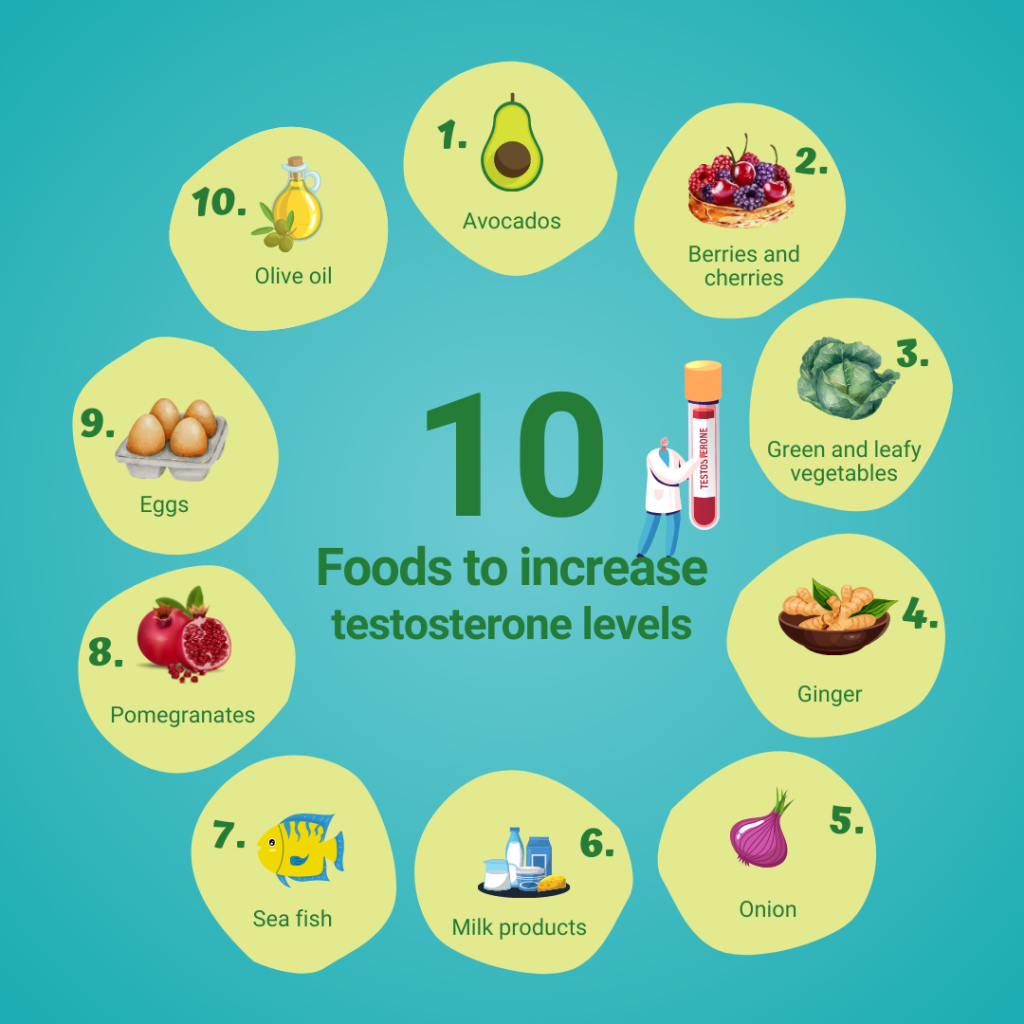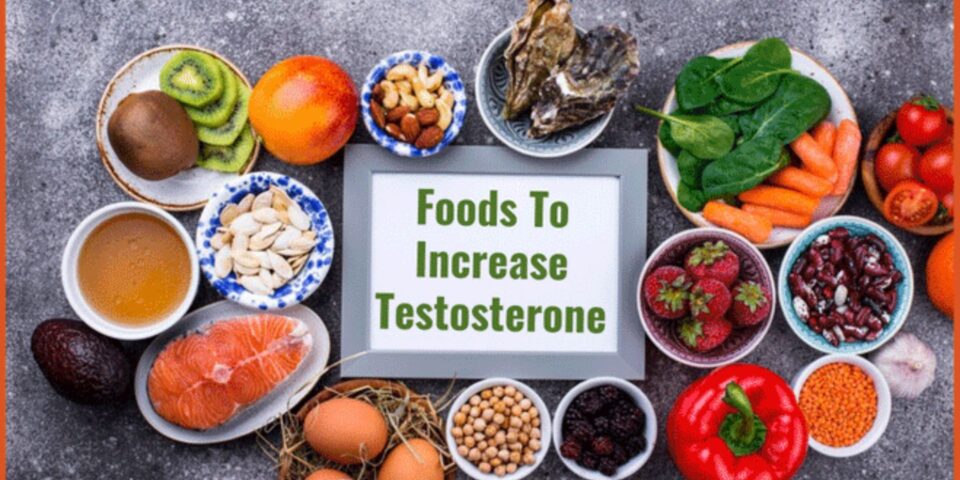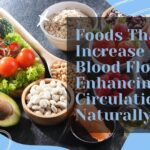Understanding Testosterone
Testosterone, the king of male hormones, influences muscle mass, energy, sex drive, and mood. No wonder there’s constant chatter about foods that supposedly “boost” it. But here’s the deal – there’s no magic bullet in the fridge. While certain dietary choices can support healthy Androgenic hormone levels, the reality is complex, often nuanced, and sometimes surprising. It is produced in the testicles in men and in smaller amounts in the ovaries in women
What is Testosterone?
Testosterone is a hormone that belongs to a group of hormones called androgens. It is responsible for the development of male reproductive tissues and the maintenance of male secondary sexual characteristics. However, it is also present in females, albeit in lower concentrations, where it contributes to various physiological processes.
Factors Affecting Testosterone Levels
Several factors can influence testosterone production, including age, genetics, lifestyle choices, and underlying health conditions. Adolescence and early adulthood witness a hormonal rollercoaster, with Androgenic hormone surging to its peak. However, this reign isn’t eternal, as this potent hormone gracefully tapers downwards as years accumulate.
Significance of Optimal Testosterone Levels
Optimal testosterone levels are essential for maintaining overall health and well-being in both men and women. In men, Androgenic hormone plays a vital role in regulating libido, sperm production, muscle mass, and bone density. In women, it contributes to libido, bone density, and overall vitality.
Testosterone Testing
Androgenic hormone levels can be measured through blood tests, which typically involve measuring total testosterone and free Androgenic hormone levels. Interpretation of test results requires consideration of individual factors such as age, sex, and symptoms of testosterone deficiency or excess.
Erectile dysfunction is a common issue with various potential causes, including low Testosterone.
Looking for FDA-approved relief from ED? Try Cenforce 25 Mg or Fildena CT 100 Mg today!
Unlock confidence and vitality with our trusted ED medications store Trustablemeds.com. Explore safe, effective solutions backed by the FDA.
The Role of Diet in Testosterone Production
Diet plays a significant role in influencing Androgenic hormone levels, as certain nutrients are essential for hormone synthesis and regulation. A well-balanced diet rich in vitamins, minerals, healthy fats, and protein can support optimal testosterone production.
Essential Nutrients for Testosterone
Vitamins and minerals such as vitamin D, zinc, magnesium, and vitamin B6 are critical for Androgenic hormone synthesis and metabolism. Including a variety of nutrient-dense foods in your diet ensures adequate intake of these essential nutrients.
Foods to Avoid
Processed foods, sugary snacks, and trans fats can have detrimental effects on testosterone levels by promoting inflammation and insulin resistance. Limiting intake of these foods and focusing on whole, unprocessed foods can help maintain hormonal balance.
Key Dietary Components
Protein-rich foods such as lean meats, poultry, fish, eggs, and legumes provide amino acids necessary for muscle growth and repair. Healthy fats found in avocados, nuts, seeds, and olive oil support hormone production and cellular function.
The Influence of Macronutrient Ratios
Balancing macronutrients—carbohydrates, proteins, and fats—in your diet is crucial for optimizing hormone function. A diet that emphasizes lean proteins, healthy fats, and complex carbohydrates can help regulate insulin levels and support testosterone production.

Foods That Naturally Boost Testosterone
Certain foods and nutrients have been shown to have testosterone-boosting properties and can be incorporated into your diet to support hormonal health.
Cruciferous Vegetables
Cruciferous vegetables such as broccoli, cabbage, Brussels sprouts, and kale contain compounds known as glucosinolates, which may help reduce estrogen levels and promote Androgenic hormone production.
Zinc-Rich Foods
Zinc is an essential mineral involved in numerous biological processes, including its synthesis. Foods rich in zinc include oysters, beef, lamb, pumpkin seeds, and chickpeas.
Vitamin D Sources
Vitamin D is a fat-soluble vitamin that acts as a precursor to steroid hormones, including Androgenic hormone. Sun exposure and dietary sources such as fatty fish, fortified dairy products, and mushrooms can help maintain optimal vitamin D levels.
Omega-3 Fatty Acids
Omega-3 fatty acids found in fatty fish, flaxseeds, chia seeds, and walnuts have anti-inflammatory properties and may support testosterone production by reducing inflammation and oxidative stress.
Incorporating Testosterone-Boosting Foods into Your Diet
Making simple changes to your diet and lifestyle can help ensure adequate intake of testosterone-boosting foods and support overall hormonal health.
Meal Planning Strategies
Plan balanced meals that include a variety of nutrient-dense foods, including lean proteins, healthy fats, and colorful fruits and vegetables. Experiment with different recipes and cooking methods to keep meals enjoyable and satisfying.
Meal Timing and Frequency
Consider incorporating intermittent fasting or time-restricted eating patterns to optimize hormone levels and improve metabolic health. Aim for regular meal times and avoid skipping meals to maintain consistent energy levels throughout the day.
Dietary Supplements
While it’s best to obtain nutrients from whole foods, certain dietary supplements may be beneficial for supporting testosterone production, especially in individuals with nutrient deficiencies or specific health concerns. Clear the path to informed self-care with a healthcare professional’s guidance on new supplements.
Hydration and Its Impact on Hormonal Balance
Water isn’t just a drink, it’s a cornerstone of well-being, balancing hormones and keeping your body humming. Aim to drink plenty of water throughout the day and limit consumption of sugary beverages and caffeinated drinks, which can disrupt hormone levels and hydration status.
Beyond the Plate:
Remember, diet is just one piece of the puzzle. Lifestyle factors like sleep, stress management, and regular exercise significantly impact testosterone levels. Aim for 7-8 hours of sleep, manage stress through techniques like meditation, and engage in moderate-intensity exercise for at least 30 minutes most days of the week.
Lifestyle Factors That Support Healthy Testosterone Levels
In addition to diet, various lifestyle factors can influence Androgenic hormone levels and overall hormonal balance.
Exercise and Physical Activity
Regular exercise, especially resistance training and high-intensity interval training (HIIT), can help boost testosterone levels and promote muscle growth and fat loss. Combine cardio, strength, and flexibility for a well-rounded approach to health and well-being.
Stress Management Techniques
Chronic stress can disrupt hormone levels and contribute to testosterone deficiency. Practice stress-reduction techniques such as mindfulness meditation, deep breathing exercises, yoga, or spending time in nature to promote relaxation and emotional well-being.
Sleep Quality and Hormonal Regulation
Prioritize quality sleep by maintaining a consistent sleep schedule, creating a relaxing bedtime routine, and optimizing your sleep environment. Aim for 7-9 hours of uninterrupted sleep per night to support hormonal balance and overall health.
Avoiding Environmental Toxins
Minimize exposure to environmental toxins such as pesticides, plastics, and synthetic chemicals, which can act as endocrine disruptors and interfere with hormone production and metabolism. Choose organic produce, use natural cleaning products, and avoid plastic food containers to reduce exposure to harmful chemicals.
Monitoring and Adjusting Your Approach
As you implement changes to support healthy testosterone levels, it’s essential to monitor your progress and make adjustments as needed.
Tracking Dietary Intake and Energy Levels
Keep a food journal to track your dietary intake and energy levels throughout the day. Pay attention to how different foods and meals affect your energy, mood, and performance, and make adjustments accordingly.
Regular Hormone Testing
Consider scheduling regular hormone tests to monitor your Androgenic hormone levels and assess the effectiveness of your dietary and lifestyle interventions. Work with a healthcare professional to interpret test results and make informed decisions about your health and well-being.
Consulting with Healthcare Professionals
Seek guidance from qualified healthcare professionals, such as doctors, nutritionists, and personal trainers, who can provide personalized recommendations based on your individual needs and goals. Be open to exploring different approaches and collaborating with experts to optimize your hormone function and overall health.
Adapting Strategies for Long-Term Success
Embrace flexibility and experimentation as you navigate your journey toward hormonal health. What works for one person may not work for another, so be willing to try new approaches and adjust your strategies based on feedback from your body and healthcare providers.
Conclusion
In conclusion, foods that increase testosterone levels can play a significant role in supporting hormonal balance and overall health. By incorporating testosterone-boosting foods into your diet, adopting supportive lifestyle practices, and monitoring your progress over time, you can optimize hormone function and enhance your vitality and well-being.
FAQs (Frequently Asked Questions)
1. What food increase testosterone the most?
There’s no single magic food to skyrocket testosterone, but focusing on a balanced diet rich in these can help:
Key Players:
- Leafy Greens: Spinach, kale, rich in magnesium for its production.
- Fatty Fish: Salmon, sardines, high in vitamin D, zinc, and omega-3s, all supportive.
- Healthy Oils: Olive oil, avocado oil, offer good fats linked to hormonal balance.
- Other Boosters: Eggs, oysters, nuts, beans, berries, dark chocolate (moderation!).
2. How can I raise my testosterone levels fast?
No safe shortcuts to boost testosterone fast. Focus on long-term changes: exercise, sleep, manage stress, healthy weight, balanced diet. Doctor is key for diagnosis and safe guidance. Avoid quick fixes!
3. Can women benefit from consuming foods that increase testosterone?
Yes, women also produce testosterone, albeit in smaller amounts compared to men. Consuming foods that support healthy Androgenic hormone levels can contribute to overall hormonal balance and well-being for both men and women.
4. Are there specific foods or nutrients known to lower testosterone levels?
Certain foods and dietary habits, such as high sugar intake, excessive alcohol consumption, and inadequate nutrient intake, may negatively impact Androgenic hormone levels. Avoiding processed foods and prioritizing nutrient-dense options can help maintain optimal hormone function.
5. What food raises testosterone by 52 percent?
No single food raises testosterone by 52%. Claims like this are often misleading and lack scientific backing. While certain foods like fatty fish, leafy greens, and healthy fats may support healthy Anabolic steroid levels, their impact is unlikely to be dramatic or immediate. Focus on overall healthy lifestyle habits for lasting results. Consult a doctor for personalized advice and guidance.



